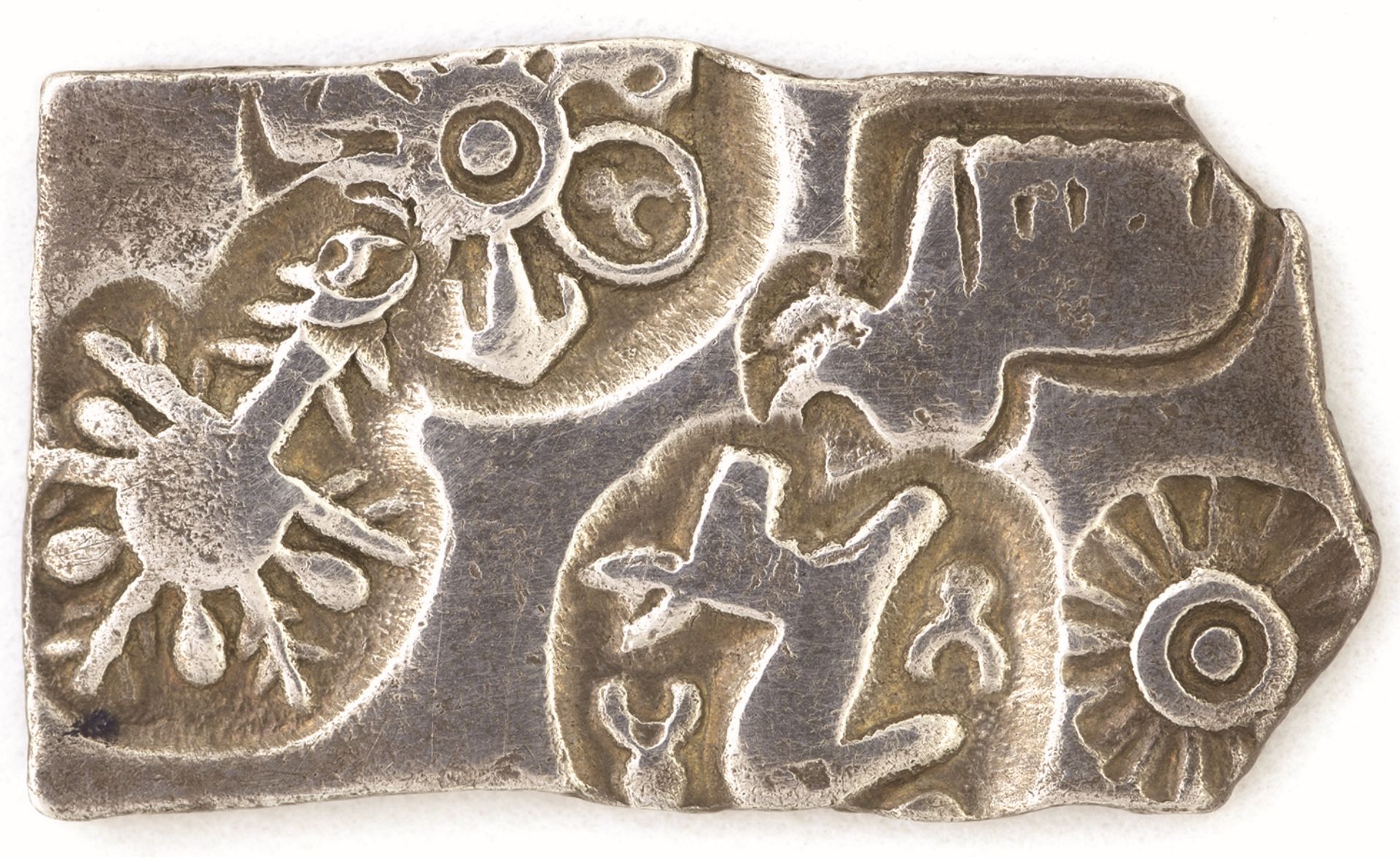Punch Marked Coin
Description
The earliest evidence of metal currency in India goes back to the 7th Century BCE, about 2700 years ago! These early coins were made in silver and have no significant shape or size. They are found in round, oval, square, rectangle, and other angular forms. These early coins have no inscriptions on them but are punched with various symbols like human figures, floral and geometrical patterns, religious symbols, trees, and plant motifs, etc. They are called punch-marked coins.
There were sixteen main states known as Shodasha Mahajanapadas in Ancient India. These earliest punch-marked coins were issued by these sixteen states. They had names like Magadha, Kuru, Panchala, Surasena, Gandhara, etc.
In the 3rd Century BCE, the Magadha Janapada acquired supremacy over a large area, and with the extension of Mauryan power, their coins became the currency of the sub-continent.
These Mauryan coins generally have five symbols on them and have a thicker flan. Each symbol is specific to a particular region.
Collection
Numismatics
Object Type
Coin
Material
Silver
Schools/Culture/Period
Magadha Janapada
Technique
Punchmarked
Date
6th to 2nd century BCE
Location
North India
Dimension
Weight: 3.5 gm
